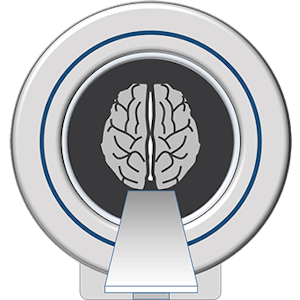Welcome to the MRI Fundamentals course, where you will delve into the intricacies of magnetic resonance imaging (MRI). This comprehensive program offers a deep understanding of MRI physics, image formation, and data acquisition strategies.
Throughout the course, you will explore the fundamental concepts of MRI, including the magnetic resonance phenomenon, signal processing theory, MR image formation, and image contrast. By engaging with diverse topics such as gradient echo and spin echo imaging, field of view, and resolution, you will develop a nuanced understanding of MRI techniques.
Join us on this educational journey and expand your knowledge of MRI, equipping yourself with valuable insights that are fundamental to the field of medical imaging.
Certificate Available ✔
Get Started / More Info
This comprehensive course comprises six modules that cover a wide range of topics, including MRI overview, magnetic resonance phenomenon, signal processing theory, MR image formation, image contrast, and MRI data acquisition strategies.
Learners will receive an overview of MRI, exploring its role as one of the biomedical imaging modalities. Additionally, they will delve into the components essential for MRI, including magnets, RF coils, and gradient coils.
Module 2 focuses on the magnetic resonance phenomenon, elucidating the signal source of MRI, the behavior of protons in a strong magnetic field, and the application of RF to cause magnetic resonance. Learners will also gain insights into relaxation and summary of the second week.
Signal processing theory is the core of Module 3, encompassing topics such as Fourier transform, properties of Fourier transform, basic signal functions, and sampling, including the Nyquist Sampling Theorem.
Module 4 delves into MR image formation, detailing how to sequence gradient pulses to obtain an image, slice selection, K-space, frequency encoding, and phase encoding.
Learners will explore image contrast, field of view, and resolution in Module 5, covering gradient echo and spin echo imaging, contrast mechanisms, field of view, and resolution.
The final module, Module 6, focuses on MRI data acquisition strategies, encompassing 2D and 3D imaging, gradient echo imaging, spin echo imaging, fast spin echo imaging, echo planar imaging, and non-Cartesian imaging.
This course on Drug Development offers insights from industry experts and faculty at the University of California San Diego. Gain knowledge about clinical trial...
Learn about cutting-edge experimental methods in systems biology, including RNA sequencing, mass spectrometry-based proteomics, flow/mass cytometry, and live-cell...
Operational Research for Humanitarians is a comprehensive course that equips humanitarian professionals and junior researchers with essential knowledge and skills...
Understanding Clinical Research: Behind the Statistics offers an accessible entry into interpreting statistical concepts in medical literature. It equips learners...